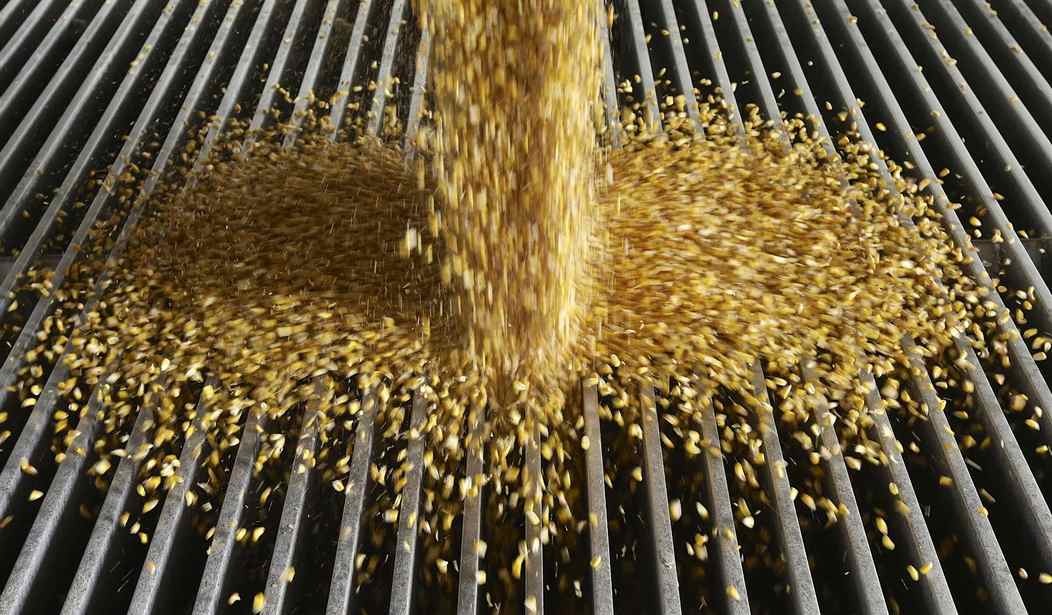The list of losers from President Donald Trump's trade war is long and likely only to grow. Consumers of washers and dryers, metal-consuming industries and their customers, and American industries caught in the crossfire from retaliatory tariffs have all been hit hard. These losses have been compounded by subsequent moves to compensate the most politically powerful of those -- e.g., farmers -- harmed by Trump's protectionism.
In July, the Trump administration announced plans to provide farmers with $12 billion in taxpayer subsidies to quell the uproar over costly retaliatory tariffs on American goods such as pork, beef and soybeans. That apparently wasn't enough, so now the administration is selectively easing regulations on ethanol at the expense of across-the-board energy policy reforms that could prioritize fiscal responsibility and market neutrality.
A few weeks ago, the White House asked the Environmental Protection Agency to end its prohibition on the sale of E15 -- fuel that is 85 percent gasoline and 15 percent ethanol -- during summer months, when the pollution from evaporative emissions is highest. The limitation was imposed to meet requirements under the Clean Air Act, though it allows for standards to be waived under certain circumstances, which the White House wants to utilize.
Some are even hailing the move as a form of energy deregulation. Accepting this view, however, ignores why ethanol is blended with gasoline in the first place. Namely, the government demands it. Yet that isn't stopping the administration from touting the new rule as "providing consumer choice" and "propping up the free market." Something is being propped up, all right, but it's not a free market.
Starting in 2005, the Renewable Fuel Standard compelled refineries to blend billions of gallons of ethanol into gasoline each year. To help with the higher cost of production, Uncle Sam provides a quota trading system to alleviate some of the pain, but that hasn't stopped a number of independent refineries from going under thanks to soaring costs.
Recommended
The RFS also created an artificial demand for corn and soybeans, causing temporary increases in prices. Those hikes doubled because of what was effectively a mandate to farmers to convert some 16 million acres of wheat, sorghum and other crops into land for corn and soybean production, which took time and caused the supply to be less.
The beneficiaries are corn and soybean farmers and the ethanol industry, which now possess a captive market thanks to RFS mandates. The losers are not only the refineries forced to carry out the mandate at their (and their workers') own expense but also livestock farmers, who have to pay higher corn prices for feed, along with the consumers who purchase meat and dairy products. The result has been a depression of farm incomes and higher prices for consumers.
That's not what consumer choice looks like. That's what cronyism looks like.
The year-round sale of E15 has long been a holy grail for the ethanol industry. It's the sort of thing that can provide leverage and force negotiation between opposing sides and lead to much-needed reforms of wasteful programs such as the RFS. But unless Trump reverses course and stalls the new regulation, pending an agreement over additional reforms, he's sacrificing that valuable piece and leaving RFS untouched to make up for the damage of his tariffs. His bad trade policy, in other words, is leading to bad politics and thus the perpetuation of other bad policies.
Were it not for the president's need to placate a constituency feeling the pain of his trade war, the administration might have approached energy policy reform in a more comprehensive way, and with a real focus on market-based solutions that avoid picking winners and losers as the RFS mandate does. Instead, we're seeing how his protectionism is not just making the economy worse but also hindering efforts to fulfill his oft-stated goal of draining the swamp.

























Join the conversation as a VIP Member